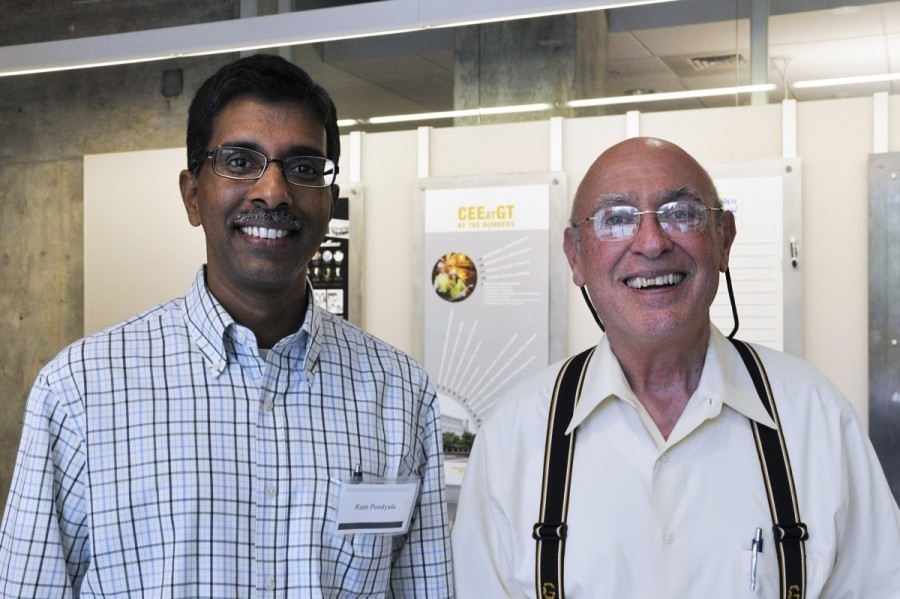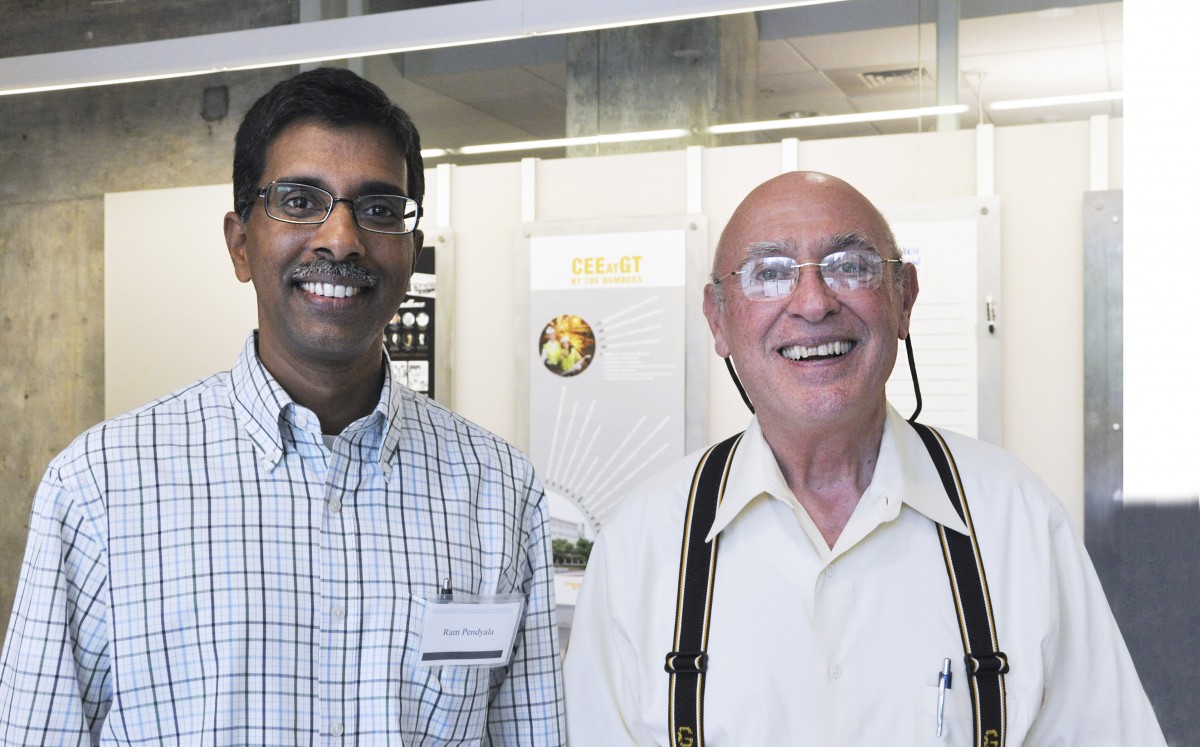
 Ram Pendyala joined the School of Civil and Environmental Engineering this semester as the new Frederick R. Dickerson Chair in Transportation Systems.
Ram Pendyala joined the School of Civil and Environmental Engineering this semester as the new Frederick R. Dickerson Chair in Transportation Systems.
Pendyala, a widely recognized expert in next-generation tools for transportation planning, comes east from the Phoenix area, where he was a professor at Arizona State University.
“This was an opportunity for me to join a very reputed and larger transportation group that is home to a couple of university transportation centers, has a long history of undertaking cutting edge research, and has a very close working relationship with Georgia Department of Transportation as well as other agencies,” Pendyala said recently from his new office with a view of the Coca-Cola building and downtown Atlanta. “It just seemed like a great opportunity to be able to collaborate with several colleagues working in different domains and see what might be possible.”
Pendyala is already at work considering some of the possibilities.
Big Ideas
Maybe the transportation group could start a series of intensive workshops to help transportation planners grapple with cutting-edge issues and technology.
With so many experts on travel behavior in the same building — Patricia Mohktarian, Randall Guensler, Kari Watkins and Laurie Garrow among them —Pendyala thinks it might make sense to form a new center that would make Georgia Tech the go-to place for understanding travel behavior and what it means for infrastructure.
Such a center could even lead to the creation of a new rigorous, peer-reviewed journal, Pendyala said.
All are just ideas percolating in his brain so far, but Pendyala sees the platform of the Dickerson chair as an opportunity to launch into large-scale, visibility-enhancing projects.
“[The transportation group is] a very high-powered group. Everybody’s very well known,” Pendyala said. “I think it’s just a matter of coalescing some of our activities and projecting them in a high-impact way.”
 Ram Pendyala (left) holds the Frederick R. Dickerson Chair in Transportation Systems. Here he is with the chair's namesake at a welcome reception in September. (Photo by Jess Hunt.) |
|
Tiny Data
Pendyala’s work focuses on developing and refining new mathematical models that help planners decide what transportation infrastructure their communities need in the years to come. He’s trying to create models to simulate the activity and travel patterns of an individual or single household.
That kind of high resolution modeling means travel predictions would be more accurate. It also delivers richer information that allows researchers and policy makers to figure out who benefits (and who doesn’t) from a transportation project or policy. They can isolate a specific segment of the population based on demographics or socioeconomic status, for example, and see how their travel and quality of life is affected or how the project improves or hurts their access to jobs.
These high-definition models can also tell officials what’s happening in any part of the transportation network, down to the detail of a specific intersection at a specific time in the day.
“By going down to that level of detail, you’ll be surprised as to how much performance enhancement you can realize,” Pendyala said. “Sometimes a network can break down by one intersection becoming a critical bottleneck in the system, or a single link in the network or one particular ramp in the network being sub-optimal.”
With all of that, he’s still a teacher at heart, however.
“At the end of the day it’s all about the students – giving the students the best experience that they can get, exposing them to the different domains of transportation, and providing them opportunities to meet people and present their work at various forums,” Pendyala said. “It really comes down to the student experience, making them have a great time here, learn a lot and be able to carry the Georgia Tech message to wherever they go.
“Their success is really our success.”
Pendyala serves as the chair of the Transportation Research Board’s Travel Analysis Section, which helps facilitate the board’s work on developing and enhancing transportation forecasting tools. He also works internationally with other researchers looking at improvements to bus rapid transit in India, building smarter infrastructure for growing urban populations, and understanding how people in rapidly developing countries make choices about their travel activities.
